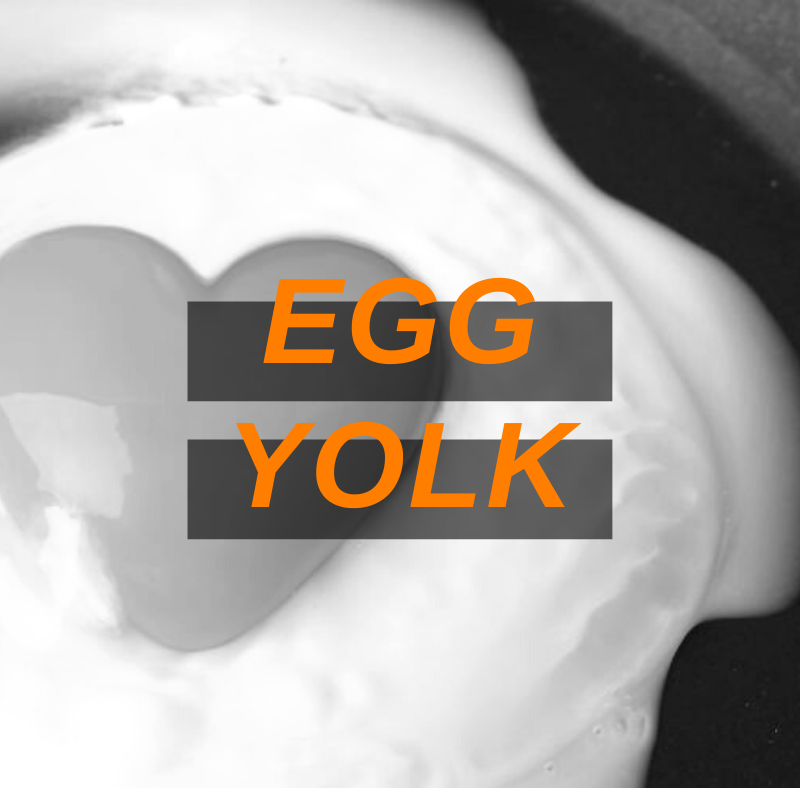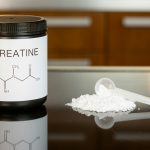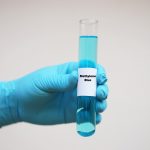
At only a few inches tall, the humble egg holds surprising nutritional dominance, often touted as the “Gold Standard” of pure protein. From its vitamin content and macronutrient profile to its excellent bioavailability, serious strength trainers have long held the egg in the highest regard. When, then, and why did the yolk get vilified? Read on to learn why breakfast no longer must consist solely of egg white omelets!
Nutrition Powerhouses
Eggs are a source of great overall nutrition, more than just pure protein afforded by the fact that they contain all of the essential amino acids. One large egg offers 6 g of protein and 14 important nutrients—including folate, iron, zinc, choline, and vitamins A, B12, D, and E—all for just 70 calories. Throughout the years, the yolks ended up on the short end of the nutritional stick, as they contain a mix of saturated and unsaturated fats.
However, it turns out that eliminating them from the breakfast table also left us short on amino acids, iron, choline, and the all-important vitamins D and E. Whole egg consumption also yields an abundance of carotenoids, nutrients found in yellow and orange plant matter that lend a rich yellow tint to foods passed through the animal to the final product (and autumn foliage!). Lutein and zeaxanthin top this list of carotenoids, known for promoting eye health and thwarting macular degeneration.
How the Egg Yolk Was Vilified
New research suggests that including one egg as part of a healthy daily menu might hold cardiovascular disease at bay. Fifty or so years ago, nutritional experts frightened us all by declaring that high dietary cholesterol equated to high overall blood cholesterol levels, which in turn would leave us vulnerable to cardiovascular complications. In recent years, however, a plethora of randomized trials and research studies have gone so far as to completely contradict any correlation between whole egg consumption and an increased risk of premature death from heart disease.
One such study assessed close to 300,000 men and women, none of whom exhibited any signs of cancer, Type 2 diabetes, or any form of cardiovascular disease. After following these subjects for 32 years, approximately 14,000 presented with cardiovascular disease. These individuals fell into a unique category: those who frequently consumed whole eggs and red meat showed a higher BMI and had not received aggressive statin treatment for elevated cholesterol levels. The majority of participants ate 1-5 whole eggs each week; the final analysis revealed that enjoying a whole egg every day did not align significantly with overt heart disease risk.
“Moderate egg intake…does not increase the risk of cardiovascular disease or mortality even if people have a history of cardiovascular disease or diabetes,” said first author Mahshid Dehghan, PhD, investigator in Nutrition Epidemiology at the Population Health Research Institute and senior research associate, Department of Medicine, McMaster University, Hamilton, ON.
“Also, no association was found between egg intake and blood cholesterol, its components or other risk factors,” she added. “These results are robust and widely applicable to both healthy individuals and those with vascular disease.”
Jo Ann S. Carson, Ph.D., R.D.N., L.D., member of the American Heart Association’s nutrition committee and Professor of Clinical Nutrition at UT Southwestern Medical Center in Dallas, shared an interesting perspective. “Consideration of the relationship between dietary cholesterol and CVD risk cannot ignore two aspects of diet. First, most foods contributing cholesterol to the U.S. diet are usually high in saturated fat, which is strongly linked to an increased risk of too much LDL cholesterol. Second, we know from an enormous body of scientific studies that heart-healthy dietary patterns are inherently low in cholesterol.”
To fine-tune cardiovascular risk, our focus is best kept on overall saturated fat consumption rather than dietary cholesterol.
Dietary Cholesterol vs Blood Cholesterol
The five grams of fat in a single whole egg come from the monounsaturated and polyunsaturated varieties. Interestingly, scientists have come to realize the crucial differences between dietary cholesterol and cholesterol in the blood. In years past, the connection between whole egg consumption and risk of cardiovascular complications pointed directly to the cholesterol content (found in the egg yolk).
Recent studies have highlighted the fact that for the majority of healthy individuals, cholesterol itself affects total blood levels infinitely less than a mix of saturated, trans, polyunsaturated, and unsaturated fatty acids. This means that to the human cardiovascular system, a meal consisting of poached eggs, salsa, and 100% whole grain bread fares far better than a brunch menu of greasy omelets, biscuits and sausage gravy, and white toast. A little vigilance and self-control matter greatly, as our nutritional intake remains under our conscious free will, as we regularly like to remind our weight-conscious clients.
Better Together
While an abundance of fresh vegetables and fruits also can add valuable carotenoids to a colorful meal, their absorption fares much better when consumed along with dietary fats. Researchers at Purdue University in Indiana conducted a small study in which 16 subjects randomly ate one of three different lunch entrees: a vegan salad, a salad with 1½ scrambled eggs, and a salad with three scrambled eggs. The third option reflected up to a ninefold increase in carotenoid absorption. The ingestion of the whole egg facilitated absorption of not just lutein and zeaxanthin, but also carotenoids and lycopene from the vegetables.
“Americans underconsume vegetables, and here we have a way to increase the nutritive value of veggies while also receiving the nutritional benefits of egg yolks,” said Wayne Campbell, the study’s lead author.
One Size Cannot Fit All
Take-home message: dietary recommendations regarding whole egg consumption including the egg yolk cannot apply equally to all individuals. The majority of diverse healthy populations experiences no elevated risk of developing coronary heart disease simply by increasing cholesterol intake. Rather, by not separating the whites and discarding the yolks when prepping omelets, the health benefits of abundant carotenoid inclusion can render that breakfast even more satisfying! Let’s raise our glasses of nutrient-dense cranberry juice and toast Bon Apetit!
References:
mdlinx.com/article/6-clinically-proven-reasons-why-eggs-are-great-for-heart-health/1kDR7rt4YOxZnG5v5OamYj
bmj.com/content/368/bmj.m513
link.springer.com/article/10.1007/s11427-020-1656-8
pubmed.ncbi.nlm.nih.gov/29596318/
pubmed.ncbi.nlm.nih.gov/16340654/
hsph.harvard.edu/nutritionsource/food-features/eggs/
thetimes.co.uk/article/are-eggs-bad-for-your-health-again-kr8bdj7s9
time.com/4536939/egg-white-yolk-cholesterol/
nhlbi.nih.gov/news/2019/egg-consumption-linked-higher-risk-heart-disease-and-death
time.com/5551508/are-eggs-bad-for-you/
newsroom.heart.org/news/heart-healthy-diets-are-naturally-low-in-dietary-cholesterol-and-can-help-to-reduce-the-risk-of-heart-disease-and-stroke







